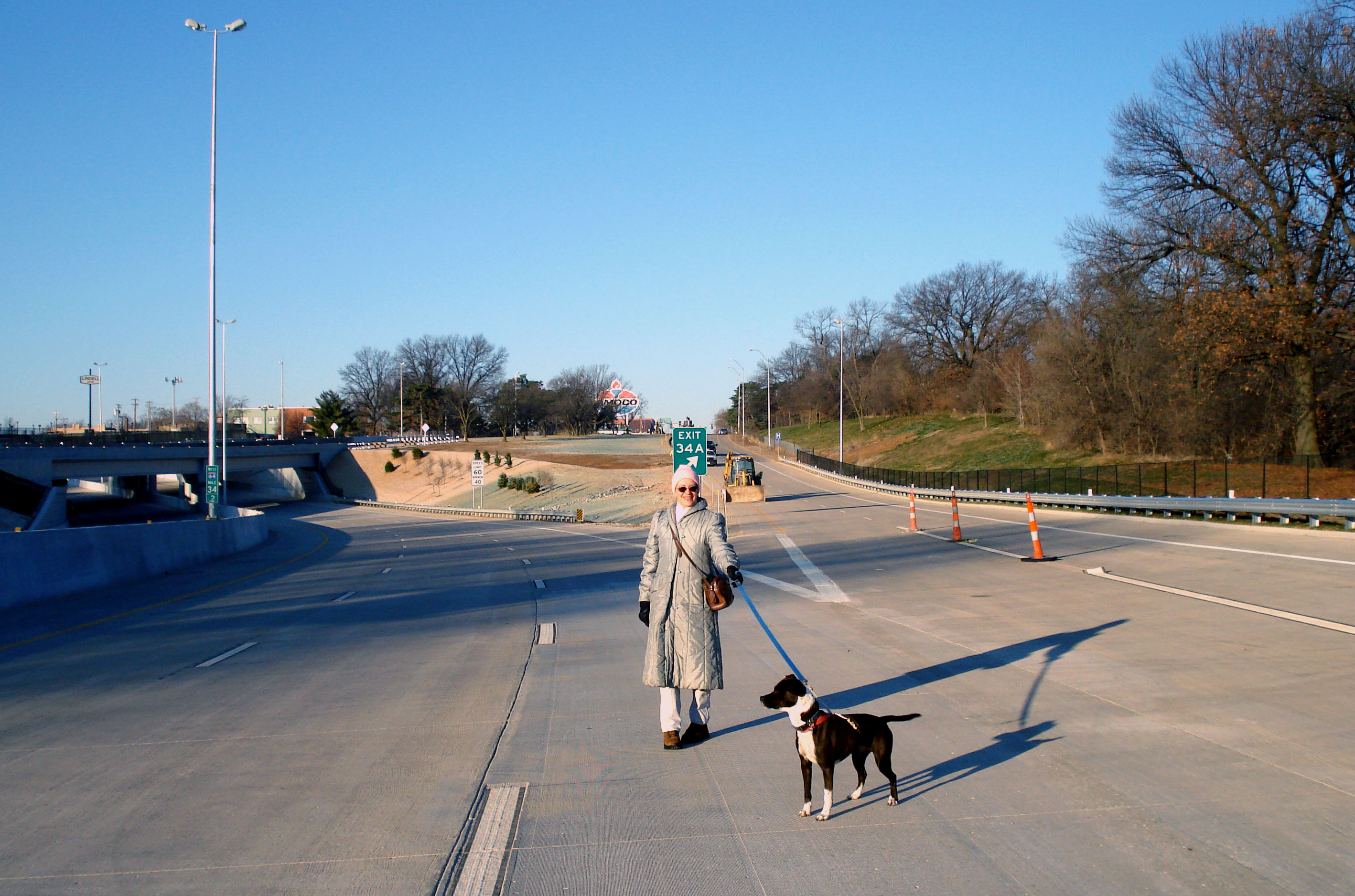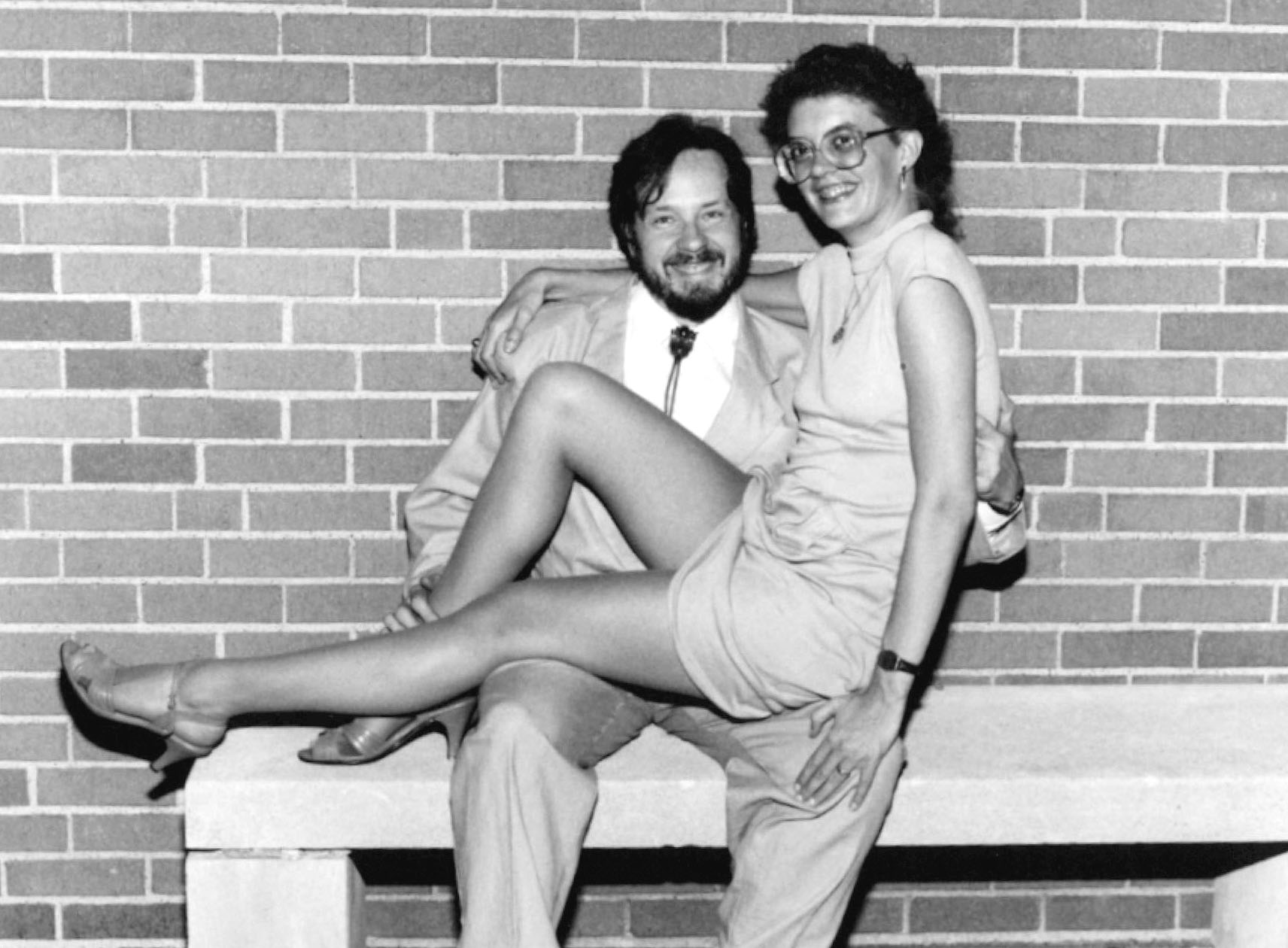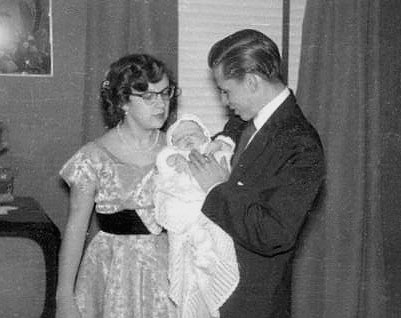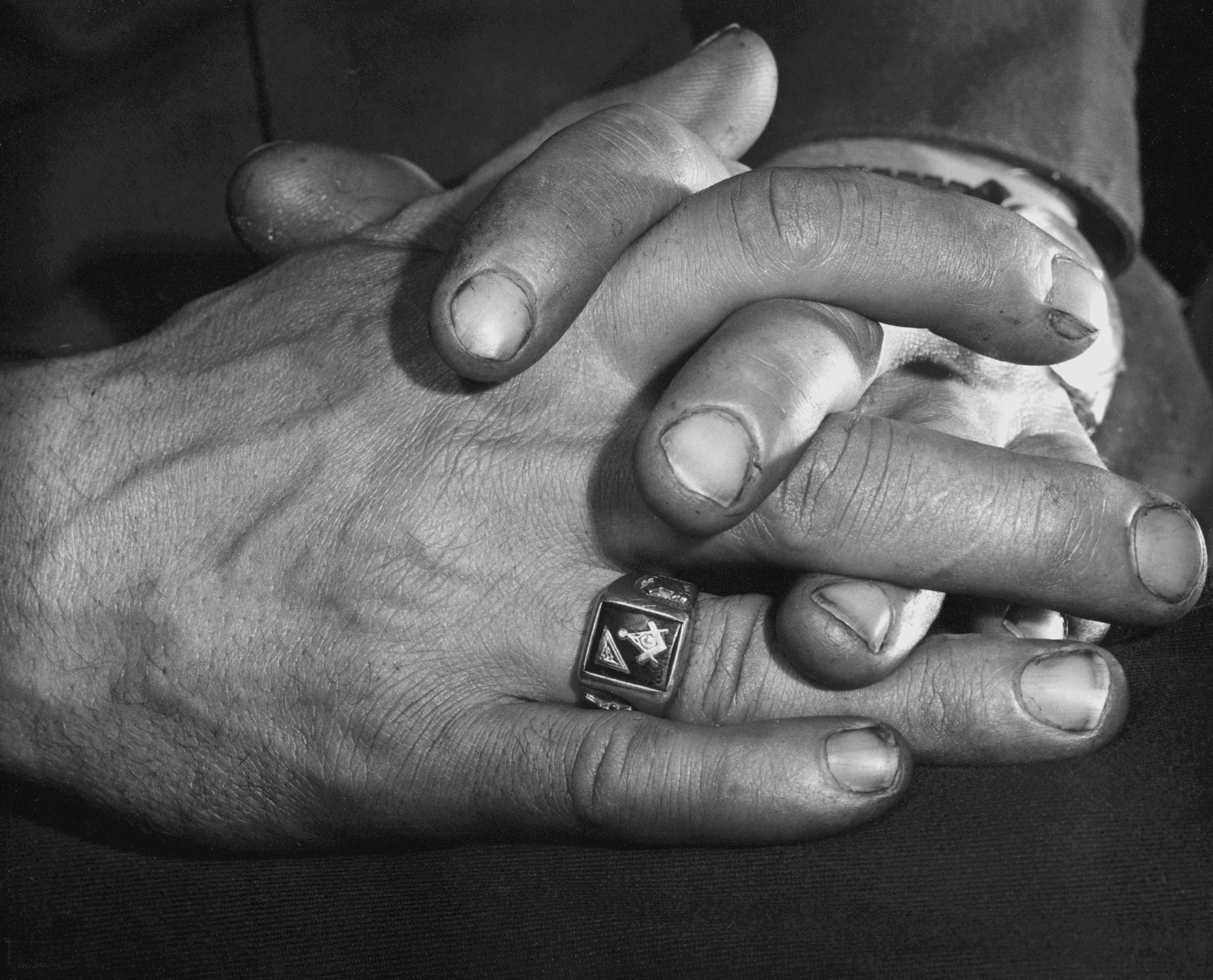What follows is an old post from my original website, back in 2005. I’m reposting it because of a revisitation. Yesterday I had a knock on the door and there were a couple of people from some small church, spreading the good news.
Now, there is irony here, because I’ve just started reading Richard Dawkins’ The God Delusion. I didn’t read it when it first came out because it received so much attention and there was an enormous quantity of posturing, both pro and con, regarding it, that I decided to wait till the furor died down. Besides, it’s not like I needed convincing on this point. But I appreciate well-reasoned arguments and in the last couple of years I’ve become acquainted with Bart Ehrman’s work on textual criticism, so last month I spotted both the new paperback edition of The God Delusion as well as Dawkins’ new hardcover on evolution, The Greatest Show On Earth.
So 150 pages into The God Delusion, my Saturday is briefly interrupted by two well-meaning folks wanting to save my soul. I did not let them linger. “I’m an atheist,” I said. Their faces fell and I smiled. “Don’t worry, it’s not catching. Unless you have a functioning brain with more than a smidgen of education.”
The man frowned, the woman continued to look alarmed.
“I have one question,” I said. “I see you have a Bible with you. Have either of you actually read it?”
“Of course,” the man said.
“Really? The whole thing? All the way through?”
“Well…” she waffled.
“In that case would you please tell me why Jesus has two contradictory genealogies?”
They both looked baffled.
“Matthew and Luke,” I said. “You have read them? Matthew One has a genealogy and Luke Three has a genealogy, tracing Jesus’ lineage back to David. They contradict. I was wondering why.”
“No, they don’t,” he said, flipping open his Bible. This was too good to be true. He found the one in Matthew and skimmed it. “Okay. Luke…?”
“Three.”
He flipped to that. Found it. Read it. Looked up at me with a puzzled expression.
“They aren’t the same. How come? I mean, if this is supposed to be inerrant—I assume you believe it is?—then how come they don’t match? Just curious. And one other thing, while we’re on that point. If Jesus was supposed to be the son of god, how come both genealogies trace him back through Joseph? Because Joseph is only his step-dad. How come they don’t go through Mary? I’m just curious, I’ve never heard a good answer to that.”
The man started to look angry, but the woman actually asked, “What do you think that means?”
“Well,” I said, “it means someone got something wrong. Either that book is not inerrant like you think it is, or it’s just a bunch of bullshit. Have a nice day.”
I shut the door. Rude? Perhaps. But as I explained in the following essay, I feel the rudeness is first manifest on their part. So without further ado, I will proceed to my thoughts on the occasion of a visit from some Jehovah’s Witnesses back in 2005…
*******************************************************************
The other day, two nice ladies of the Jehovah’s Witnesses knocked on my door. This was, in fact, their third visit. On the previous two, they had spoken with Donna, who was polite and nice and somehow left them with the idea that they had a potential convert here. They had left literature and apparently decided to return. This time, they got me.
I don’t like proselytes. I don’t like telemarketers either. I see them as essentially of the same species of intrusive “you don’t know what you want because you don’t know what I’ve got to sell you†school of bullying. I don’t like aggressive salesmen. If I’m wandering through a store, and someone approaches with a polite “Are you finding everything okay? My name’s Mike, if you have any questions…â€Â That’s fine. If I have questions, I’ll go find Mike or whoever and ask. If I don’t, and he approaches again, my inclination is to leave. He’s stepped over the line as far as I’m concerned. Telemarketing is worse–I’m not even in their showroom–and religious proselytes are from one of the circles of hell.
Here’s the deal: to knock on your door and present you with salvation, they have to make a basic assumption–that you have no clue about the nature of reality and even if you think you do, you’re wrong, because they know the skinny on god’s plan. In other words, they have to assume you’re stupid, ignorant, or tacitly in league with evil.
If I walk into a church to hear the services, maybe some of this assumption has some basis–if I weren’t looking for something, I wouldn’t have walked into the church. But I’m in my home, minding my own business, and there comes a knock on the door. They have come to find me, to tell me I should be in church–theirs–and that they have brought with them the Good News. They have interrupted my time, intruded on my day, and have insulted me besides.
I realize most people may not feel this way–the insulted part. For most people, such visits are just an annoyance. Something about it bothers them, maybe, but it’s an ill-defined unease, and they’d just as soon forget about it after the missionaries leave. If they had wanted to ponder the ultimate questions, they’d be doing it somewhere else–like a library or, even, a church.
Proselytes, however, never assume you have done this. And if you have, and your conclusions are other than what they have to offer, why, then, you have slid into error. You must be saved.
When they showed up, I recognized them from their two prior visits. Donna was napping, so I decided to deal with them. I really didn’t want them coming back, and neither did Donna, so I decided to take the time to convince them they weren’t going to find receptive minds here–in fact, they would find active minds that had already dismissed their message as more of the same old rubbish.
Rubbish. Dare I call it that? Why be polite? It’s rubbish.
In specific, the Jehovah’s Witnesses were founded in 1878 by Congregationalist minister Charles T. Russell announced that Christ had already returned–invisibly, four years earlier–and that the world would end in 1914, when the Final Battle of Armageddon will occur, after which only 144,000 people of all those who have ever lived with reappear in heaven. (In 1884 he started the Watch Tower Bible and Tract Society to spread this message.) Russell died in 1916. He might have thought Armageddon was taking a long time to be fought, as Europe had turned into the bloodiest battle ground in memory. He was succeeded by Joseph Franklin Rutherford, who officially called the movement Jehovah’s Witnesses, and, in 1931, declared in a fit of prophecy that “millions now alive will never die.”
The original date of Armageddon and the End of the World passed 17 years earlier, but the difficulty of getting the date wrong has never bothered proselytes of apocalyptic faiths. They just move the date forward, with each new prophet, each new error.
The whole emphasis of apocalyptic groups is on death and destruction. Everything is about to go up in flames, come crashing down, blow up, dissolve, melt, disappear, perish with requisite rivers of blood and torment. All this comes from the Book of Revelation, which is the centerpiece of such movements. I guess they really like all that metaphysically and symbolically bizarre imagery. The rest of Scripture seems so tame in comparison.
So while the Jehovah’s Witnesses are a specific example, in general there are dozens if not hundreds of these little sects, all preaching that the end time is nigh and we’ve got to get right with the lord. Rubbish?
Indeed.
But I wanted to make a larger observation about insult here. They come to your door and insult you. You should be insulted. You should take offence. Because at base they are flat out telling you that your life has no meaning. Never did, never will–unless you accept their version of reality. Even then, everything you’ve done up to that point is irrelevant and error-filled. Empty. Devoid of meaning, pointless.
It’s insulting.
They asked me if I had ever been a church-goer, and I explained that, yes, one time I was a Lutheran, but that had been dissatisfying, so I went on a search for a different faith. I went through a short list of all the different religions I’d visited or given a try–Catholicism, Buddhism, Islam, Bahai, Krishna, Seventh Day Adventist, Pentecostal–after which I came away satisfied that they were all incomplete, wrong, or, more fundamentally, based on the same misapprehension of the universe.
(You might ask, have I not just insulted them by suggesting that what they do is pointless? No, because I don’t go door to door trying to convince people they’re wrong. There is more than one reason to practice a religion, more to faith than doctrinal purity, and who am I to judge someone else’s method for coping with the world? I may write my opinion down and even publish it, but no one is forced to read it. My conclusion is all mine and if someone asks, I’ll express it. The insult is in the intrusion.)
One of the ladies asked “Don’t you think you were searching for something? Why else would you have gone looking like that?â€
Good question. And at the time I was searching. But I don’t believe I failed to find it. I did find it. I found an answer. But the impulse to search is more mundane. “We’re raised that way,†I said. “We live in a culture where not to believe in something is unacceptable. From the time we’re old enough to understand English, we’re told about Jesus and that it’s a good thing to go to church. Just to fit in, one feels the need to belong to some kind of congregation.â€
I don’t think they expected that answer, because they had no come back. Besides, it has the virtue of being true. Most people, I think, attend a religion for social reasons. They were raised that way, and really, what harm does it do? You can see this when Big Issues shake up a congregation, like over the question of ministering to gays or something, and the less doctrinaire manage to accommodate the change while the real fire breathers pick up their toys and go somewhere else.
This is not to say that all those people don’t really believe in god–but you don’t need an organized framework to have faith. You can believe in all manner of thing without attending a church based on it. The church part is social.
We got into the specifics of biblical prophecy. They showed me passages they thought referred to present days. Of course, they were so vague they could refer to any period at any time in history. I pointed this out repeatedly. I asked why they thought these passages meant now rather than a thousand years ago. “Today, it is a global civilization. Then, it was just one small area of the world.â€Â Well, that was a wrinkle I hadn’t thought of.
But “The World†is an adaptable phrase, and for each generation has a slightly different meaning. Back when the bible’s books were being written, “the World†was that local slice.
The vagueness of the passages did not impress them. When I told them that the battle of Armageddon had been fought long ago, at a place in the Levant called Megiddo, they didn’t know what I was talking about. I explained that the infamous battle took place in 609 B.C.E. between King Josiah of Judah and the Egyptian King Necho II. It was said to have been the bloodiest battle ever fought up to that time.
(Now, the British under Allenby starting their final offensive in 1918 at Tel Megiddo against elements of a retreating and regrouping Turkish army. It hardly qualifies as the Last Battle–the British took 36,000 prisoners at a loss of only 853 dead.)
Armageddon, then, was already a historical event when Revelations was written. It was in the past, not something yet to come. Now, King Josiah had been one of the last great reforming kings of Judah–his death at this battle was symbolic of ultimate calamity among the Hebrew. It is difficult to explain to people who don’t bother to learn about biblical history that Time is fluid in prophetic literature–the past and future easily swap ends, what happened will happen, and just referring to an event that has happened in the past is intended as part and parcel of an æsthetic tradition (rather like quoting an old piece of music in a new composition to underscore a connection, make a point). What the writer of Revelation was talking about was the fall of Rome, which was at that time very much The Beast, and the calamity to befall Rome was on a scale with the calamity of Josiah’s death. Of course, this being a Hebrew prophecy, Israel would come out on top–not unscathed, though, as only 144,000 Jews would survive to inhabit what was left. We can assume the number is so low because of the cabalistic tradition of assigning mystic significance to numbers. Twelve is such a number. There are 12 tribes of Israel, 12 X 12,000 = 144,000. What always seems forgotten by contemporary christian sects like the Witnesses is that this refers to Hebrew survivors, nothing else. The number is low in real terms, probably as a nasty judgement on the part of John of Patmos that only 144,000 of the Chosen were doctrinally fit to be saved. In any case, its significance is probably lost to the current politics of the days in which it was written.
To take Revelations as anything other than the political and mystical polemic of a dissatisfied Hebrew living under Roman rule (specifically under Nero) is to assign it importance all out of bounds with its original intention.
Neither of these ladies knew or accepted that John the Divine, composer of Revelations, was not John the Apostle, putative brother of Jesus. Neither of them had the least grasp of biblical scholarship, nor did they care.
They continued showing me passages. They asked what I relied on. “Reason,†I replied.
“And what does that give you?â€
“It gives me a basis for understanding what I can control and what I can’t.â€
More passages. I wasn’t giving them answers to which they had set responses. I dismissed each passage and finally the older of the two asked, “We’ve shown you our proof. Show us yours.â€
“Certainly. What kind of proof would you accept?â€
“Nothing you have can possibly contradict the word of god.â€
“Then why should I bring it out? You’ve already made up your mind.â€
And so it went.
They finally left, I hope more than a little befuddled.
They had shown up on my doorstep with the best intentions. They were going to try to save my soul.
Why is this insulting?
Because it makes a whole raft of assumptions about me–or anyone they approach–that they can neither know or have a right to meddle with. They have to assume that I am ignorant, that my life is empty (or just naggingly incomplete), that I thirst for something I have never tasted before.
I could turn it around and start discussing physics, or biology, or neuroscience. I’m quite sure they’ve never brushed up against the more intriguing wonders of nature. On the contrary, they’ve shut themselves up in a room bounded on all sides by a dogged certainty that nothing outside can possibly be of any relevance or interest. The certainty of the closed mind.
When I showed them the contradictory genealogies in Matthew and Luke, that describe completely different lines of descent for Jesus, they dismissed it as a “Jewish thing, tracing from both lines.â€Â That didn’t make any sense to me. I pointed out that both genealogies ended at Joseph and that if taken literally, this meant that Joseph had two fathers. Would they accept a genealogist’s report that suggested they had two different fathers? That point seemed to shoot right by them. I didn’t even bother to make the larger point, that if this was the word of god, and literal, then the lineage should have been traced through Mary, not Joseph. That would indeed have been revolutionary in its day, running counter to tradition, and leaving future generations to ponder the significance of this one instance where a lineage was traced through the woman.
As I said, closed minds.
The desperation of the proselyte is sad. There is so much in this world, so many wonderful things, that to turn one’s back on it all in order to hawk a third-class ticket to an afterlife that is doubtless nothing like anything imagined, if there is one at all (which I very much doubt) is pathetic. We know we have this life. Why waste it on pursuing the salvation of those who probably don’t need it? Why waste it on the pretzel logic of religious interpretations that leave you in no position to grow?
But I won’t start knocking on doors to ask this question and offer an alternative. I believe we all have choices and that they should not be coerced. I believe the salesman should leave you alone until you have a question. I believe telemarketers should leave you alone in the evenings. I believe proselytes should stop assuming we’re all idiots. They should understand that their seeking me out that way is really offensive. I would never presume.
But, as they say, this is all preaching to the converted.
At least I didn’t force anyone to hear the sermon. I may not believe in god, but I’m polite.






